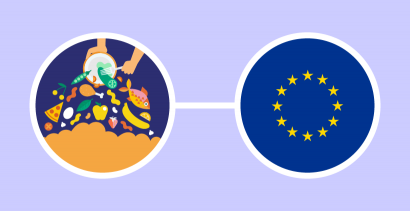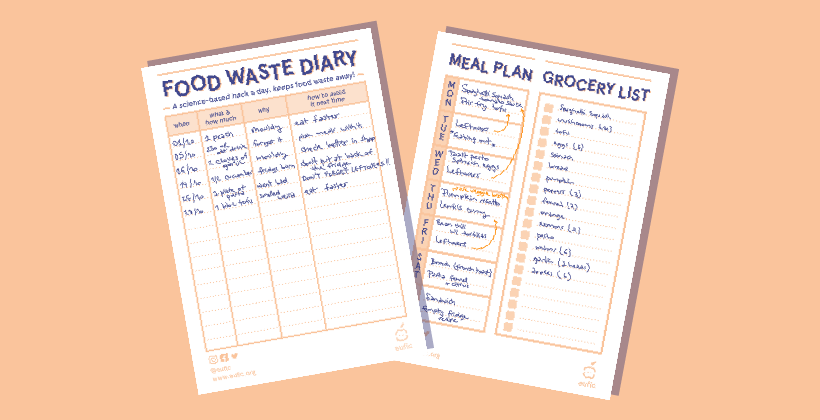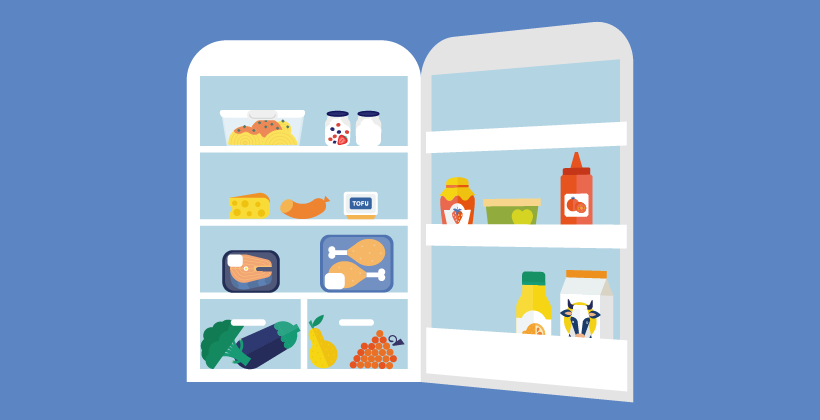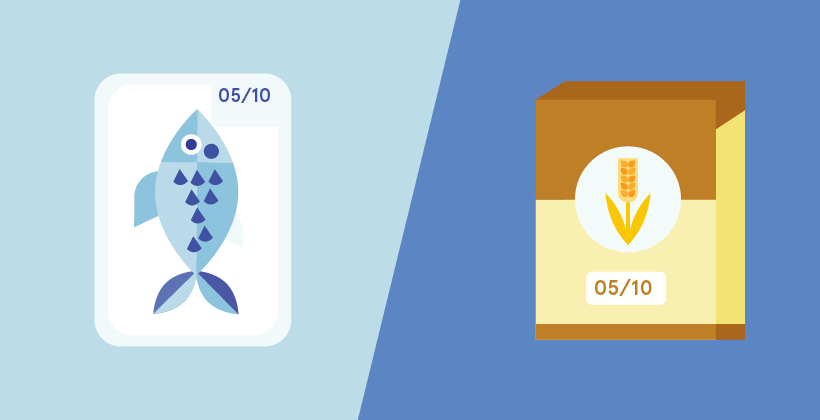Rapid response on food waste needed from all actors - what we can do in our own home
Last Updated : 29 September 2021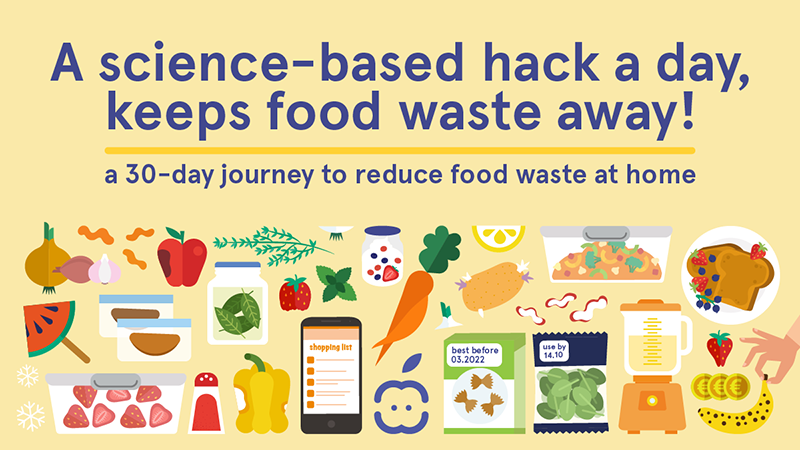
Brussels, 29 September – Food waste remains a major issue in Europe and at global level. Over 930 million tonnes of food sold to households, retailers, restaurants and other food services are thrown away every year according to the latest estimates1; and that is beyond all the food lost during production and distribution. Despite mounting pressure to reduce the carbon footprint of our diets, if food loss and waste were a country, it would be the third largest emitting country in the world2, causing more greenhouse gases than any single countries in the world except China and the US.
On September 29th, on the occasion of the International Day of Awareness of Food Loss and Waste, convened by the Food and Agriculture Organization (FAO), Dr Laura Fernández Celemín, Director General of the European Food Information Council (EUFIC), said:
"Food waste is a growing problem we need to tackle urgently across the food supply chain: throwing away food spoils valuable resources, causes excess carbon dioxide emissions intensifying the climate crisis, while putting a further strain on food security. To get a grip on food waste, we must involve all actors that can bring change, from farmers to retailers, national governments, multilateral institutions, NGOs, as well as citizens".
The international day is a call to action to both policymakers and the private sector to prioritise actions and move ahead with innovation to reduce food loss and waste towards restoring and building back better and resilient-ready, food systems.
In contribution, EUFIC, a consumer-oriented non-profit organisation working to empower healthier and more sustainable diets and lifestyles, launches today a month-long social media action and awareness campaign providing citizens with robust information on how every simple action at home can make a positive contribution to the larger challenge.
Under the banner “A science-based hack a day, keeps food waste away - a 30-day journey to reduce food waste at home", citizens are invited to broaden their awareness of the impact of food waste, learn new food management skills and obtain practical tips to improve their own food waste habits, boosting people's motivation and knowledge to actively become a part of the solution. Food waste is currently responsible for 8-10% of global greenhouse gas emissions. The issue is the focus of the United Nations Sustainable Development goal (SDGs) 12.3, aiming to, by 2030, halve per capita global food waste at the retail and consumer levels and reduce food losses along production and supply chains, including post-harvest losses.
UNEP's 2021 Food Waste Index Report measured 931 million tonnes of food sold to households, retailers, restaurants and other food services each year; this means 17% of all food available at consumer level is currently wasted.
Food waste measurement all along the supply chain is a priority
Improving food waste measurement is crucial all along the supply chain, to make sure all actors involved play their role and bring the change needed. According to the recent Driven to Waste report from WWF and Tesco, in particular farm-stage food loss is a significant but neglected food waste hotspot. The report finds that 1.2 billion tonnes of food is wasted on farms each year – enough to feed the world's 870 million undernourished four times over, adding substantially to the 931 million tonnes wasted from retail, food service and households.
ENDS
Where is the food wasted? Food loss and food waste
Food loss refers to any food that is discarded, incinerated or otherwise disposed of along the food supply chain from harvest/slaughter/catch up to, but excluding, the retail level, and is not used for any other productive use, such as animal feed or seed.
Food waste refers to food that is discarded at the level of retailers, food service providers and consumers.
Background
Reducing food losses and waste is essential in a world where the number of people affected by hunger has been slowly on the rise since 2014, and tons and tons of edible food are lost and/or wasted every day.
Held on September 29th for the second year, the International Day of Awareness of Food Loss and Waste is an opportunity to call to action both the public (national or local authorities) and the private sector (businesses and individuals), to prioritise actions and move ahead with innovation to reduce food loss and waste towards restoring and building back better and resilient-ready, food systems.
Food loss and waste undermine the sustainability of our food systems. When food is loss or wasted, all the resources that were used to produce this food -, including water, land, energy, labour and capital - go to waste. In addition, the disposal of food loss and waste in landfills, leads to greenhouse gas emissions, contributing to climate change. Food loss and waste can also negatively impact food security and food availability, and contribute to increasing the cost of food.
UNEP's 2021 Food Waste Index Report measured 931 million tonnes of food sold to households, retailers, restaurants and other food services each year; this means 17% of all food available at consumer level is currently wasted.
EUFIC articles
- Food waste in Europe: statistics and facts about the problem
- How to reduce food waste at home
- Best before, use by and sell by dates explained
- What foods should be stored in the fridge?
- How to prevent food poisoning: tips and tricks
- Is it safe to eat eggs after the expiration date?
Relevant materials
- WWF – Tesco report: Driven to waste: the global impact of food loss and waste on farms
- UNEP 2021 Food Waste Index Report
References
[1] UNEP Food Waste Index Report 2021
[2] Food wastage footprint, impact on natural resources, FAO Summary Report
Food waste diary
Have you ever tried a food waste diary?
Tracking and realising how much waste we produce can help us make a change. It also helps us figure out what we could do in the future to avoid wasting those items.
Try out our template and share your journey with us on social media by tagging @eufic.
How citizens can follow the campaign
Instagram: @eufic
Facebook: EUFIC – European Food Information Council
Twitter: @EUFIC
About EUFIC
EUFIC - The European Food Information Council, is a consumer-oriented non-profit organisation, founded to make the science behind food and health more accessible and easier to understand among the public. Our mission is to produce science-based content to inspire and empower healthier and more sustainable diets and lifestyles among European citizens.
For more information about EUFIC, visit Eufic.org.
Press Contacts:
Davide Carrino - Media Manager, European Food Information Council (EUFIC)
marie-christine.thurm@eufic.org
+32 483 673198
